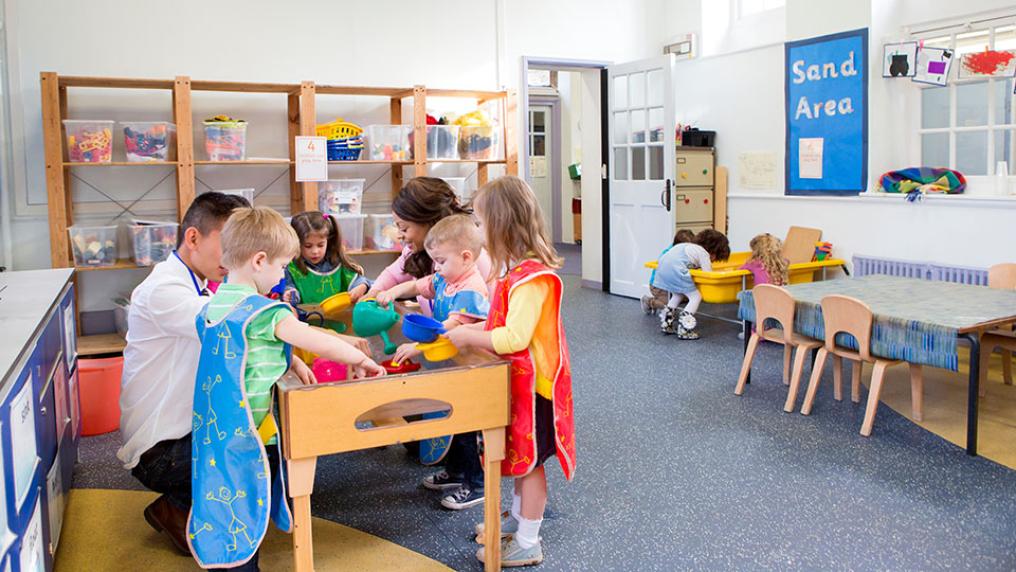Early childhood is a period of incredible growth and development, marked by curiosity, exploration, and the joy of discovery. Play, as renowned educator Maria Montessori once said, is the work of the child during these formative years. In Pune, a city that thrives on diversity and dynamism, play school programs are designed to harness this natural inclination towards exploration and provide a structured yet creative learning environment for young children. In this article, we will delve into the world of play school programs in Pune and explore how they offer early learning adventures that set the stage for a lifetime of discovery.
The Essence of Early Learning Adventures
Early learning adventures are about creating an environment where children can explore, experiment, and learn through a wide range of age-appropriate activities. These adventures aim to instill a love for learning by making education a delightful and interactive experience. Here's how play school programs in Pune achieve this:
1. A World of Exploration
Play school programs in Pune provide young learners with a world of exploration. From sensory activities that engage their senses to hands-on experiments that satisfy their curiosity, these programs offer a diverse range of activities that encourage children to ask questions, make observations, and draw conclusions. Whether it's planting seeds in a mini-garden, exploring different textures, or experimenting with colors, children embark on a journey of discovery.
2. Creative Expression
Creativity is nurtured and celebrated in play school programs. Pune's play schools understand the importance of allowing children to express themselves through various forms of art and craft. Painting, drawing, sculpting, and crafting become avenues for children to express their ideas and emotions. These creative activities not only enhance fine motor skills but also foster imagination and self-expression.
3. Music and Movement
Music and movement are integral components of early learning adventures. Play school programs incorporate singing, dancing, and rhythmic activities into their curriculum. These experiences not only encourage physical activity and coordination but also introduce children to the world of sounds and patterns. Music and movement activities foster a sense of joy, rhythm, and expression.
4. Storytelling and Language Development
Storytelling is a powerful tool for language development and imagination. Pune's play school programs frequently feature storytelling sessions where children are captivated by tales of adventure, mystery, and wonder. These sessions not only enhance language skills but also ignite children's imaginations, inspiring them to create their stories and narratives.
5. Hands-On Science Exploration
Science is all about curiosity and experimentation, and play school programs in Pune embrace these principles. Children engage in hands-on science experiments that introduce them to concepts such as cause and effect, observation, and problem-solving. These activities spark their interest in the world of science and promote critical thinking.
6. Nature Connection
Pune's natural beauty and green spaces are often integrated into play school programs. Nature walks, gardening, and outdoor exploration provide opportunities for children to connect with the environment. These experiences foster an appreciation for nature and an understanding of the world around them.
7. Social and Emotional Learning
Early learning adventures encompass social and emotional learning. Children learn to interact with their peers, share, take turns, and express their feelings. These experiences help children develop essential social and emotional skills, including empathy, communication, and resilience.
8. Play-Based Learning
Play-based learning is at the heart of early learning adventures. Children engage in both structured and unstructured play, which allows them to make choices, explore their interests, and develop problem-solving skills. Play-based learning is the foundation for all other learning adventures, as it encourages children to actively participate and take ownership of their education.
9. The Role of Imagination
Imagination is a key ingredient in early learning adventures. Pune's play school programs encourage children to use their imaginations to create, pretend, and invent. Through imaginative play, children explore different roles, scenarios, and possibilities. This fosters creativity, innovation, and a sense of wonder.
10. Parent-Teacher Collaboration
Collaboration between parents and teachers is a fundamental aspect of early learning adventures. Play school programs in Pune actively involve parents in their child's education journey through regular updates, parent-teacher meetings, and workshops. This collaborative approach ensures that parents are informed about their child's progress and can actively support their learning at home.
The Benefits of Early Learning Adventures
Early learning adventures in play school programs offer a host of benefits that go beyond just academic development:
1. A Love for Learning: By making education enjoyable and interactive, early learning adventures instill a love for learning in young children. They develop a sense of curiosity and enthusiasm for exploring the world around them.
2. Holistic Development: These adventures foster holistic development by addressing cognitive, social, emotional, and physical aspects of a child's growth.
3. Confidence and Independence: Children who engage in early learning adventures develop confidence in their abilities and become more independent in their learning.
4. Communication Skills: Storytelling, group activities, and interactions with peers enhance language and communication skills.
5. Problem Solving: Children learn to approach problems creatively and find solutions through experimentation and critical thinking.
6. Social Skills: Early learning adventures promote positive social interactions, cooperation, and the ability to work effectively in groups.
7. Emotional Intelligence: Children learn to recognize and manage their emotions, fostering emotional intelligence and resilience.
8. Preparation for Formal Education: Early learning adventures prepare children for the transition to formal education by equipping them with essential skills and a positive attitude towards learning.






Comments